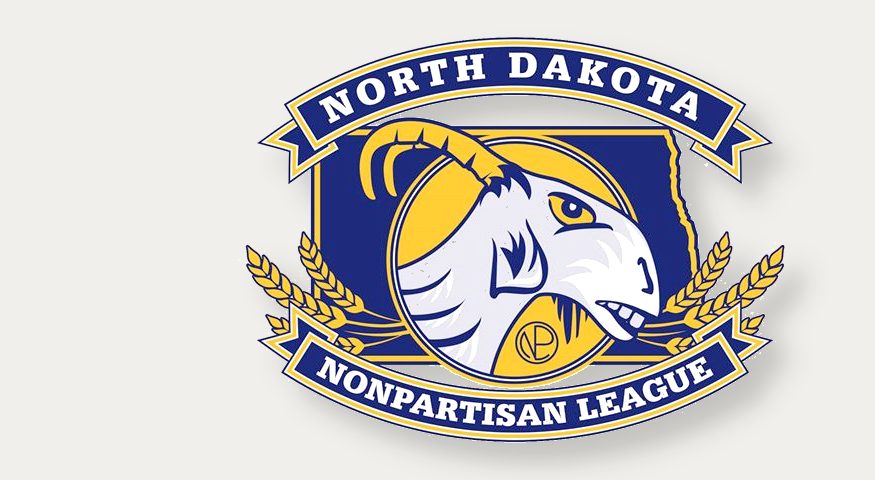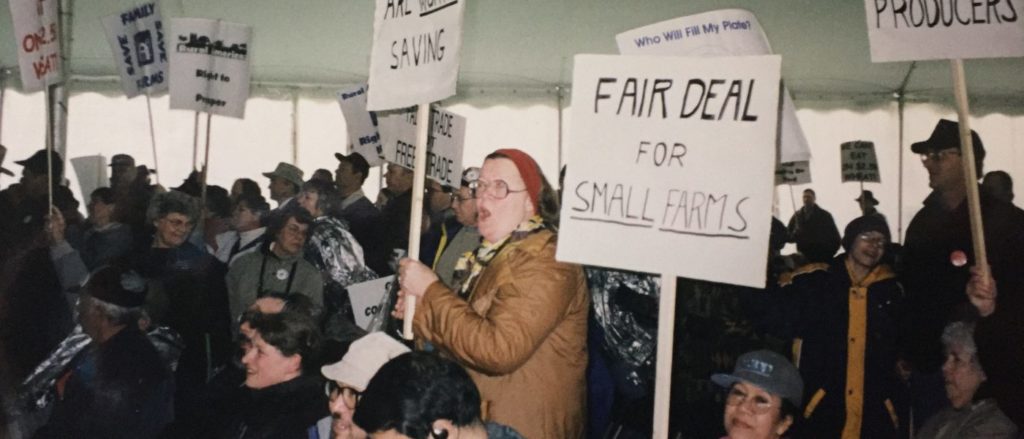
Sarah and the Two Jims
The 1980s were hard times for agriculture, the worst hard times since the Great Depression. When you look at the raw data, it is truly staggering. Real U.S. net farm income fell over 40% from the early 1970s to early 1980s. Well over a quarter of a million farms were lost in the 1980s. Those lost farms were overwhelmingly family farmers. When those local farmers failed, the rural businesses that supplied them failed as well. Eventually entire rural communities disappeared. In those years of the 1980s, Rural America hollowed out in ways that reverberate today, decades later.
All through the 50s, 60s, and 70s, federal government policy, as administered via the USDA (United States Department of Agriculture) moved steadily toward more market solutions. The attitude of the USDA was one of tough love. If you are a family farmer and if you are too small to compete with agricultural corporations, then that’s just too bad. Quit whining. Go get a job in the city. Leave the farming to the big boys.
So It was left up to the individual states to protect their rural citizens. Three champions arose. Jim Nichols in Minnesota. Jim Hightower in Texas. Sarah Vogel in South Dakota. All three of those states had a history of radical practical populism. In the north, it was the Non-Partisan League and in Texas, it was just old-timey populism.
These three agricultural commissioners advocated for the family farmer, for the farmworker, for the consumer, and for the environment. They came up with innovative approaches to solving the economic dilemma of the small farmer.
In prior PHIT Blog series, we have focused on a number of interviews from Hightower’s staff. But PHIT has also reached out to these other family farm advocates. Last year we interviewed Sarah Vogel, Agriculture Commissioner of North Dakota.
Sarah Vogel is publishing a memoir in Nov. 2021. The Farmer’s Lawyer: The North Dakota Nine and the Fight to Save the Family Farm. Keep a sharp eye for a PHIT review of the book.
In this blog, we will focus on the interview for the Texas Camelot project on the Hightower Legacy at the Texas Department of Agriculture
In the early 80s, Sarah Vogel, a lawyer, won a national class action case filed on behalf of 240,000 farmers, which resulted in an injunction prohibiting USDA from foreclosing on nearly 80,000 farm families.

“I had done this big case, the Coleman v. Block case, which stopped unconstitutional illegal foreclosures nationwide in ’83 – ‘85. …Then I decided to run for Commissioner of Agriculture because that seemed like the best platform from which I could make a difference.
“By that point, Jim Hightower, and the other Jim over in Minnesota, Jim Nichols, were the two Commissioners of Agriculture that were actually doing stuff. They were remarkable. They were getting so many things done, they were speaking out, they were really making a difference fighting for farmers, they weren’t just being passive bureaucrats. One day I got a call from one of them, saying something like, ‘We hear you’re running for Commissioner of Agriculture. We’ll come and help you.’
Vogel was elected and she quickly became a national figure, advocating for family farmers and pushing for a new direction in agricultural policy.
“Who is in office matters a great deal. Jim Hightower made it so much easier to be a good Ag commissioner because he was doing all that great stuff down in Texas.
He was great. I would literally think, if he can do it, I can do it. Before Jim Hightower, it was completely unprecedented that an Ag commissioner could do stuff like that. Before Jim, they were bloviating poohbahs. He made the office active and exciting and inspiring.”
The diversification strategy of the Hightower TDA was one of the more exciting and copied avenues for rural development. Vogel took it and created an effective state agency.
“He put a lot of attention on new uses for agriculture products, not just the commodities, the corn and the wheat and the cotton, but rather the high value products that would be produced by farmers.
We had a really moribund little agency called the Agriculture Products Utilization Commission. We took it over, reformulated it, and got new appointees. They started fostering farmers and small businesses developing new products, new businesses, new ideas. That took off, it made a huge difference. APUC funded a ton of co-ops. I would say that the idea for that was in part from watching what Jim had done down in Texas, that excitement where all these little businesses were growing from the ground up with support from the state Ag department.
Many of the diversification grant programs emanate from Jim Hightower’s vision. In North Dakota, these legacy agencies are still working. It’s much more mainstream now, the idea of diversification is acceptable. There is less of a focus on commodities and more on specialized crops. The added value movement, I think, was first articulated by Jim Hightower.”